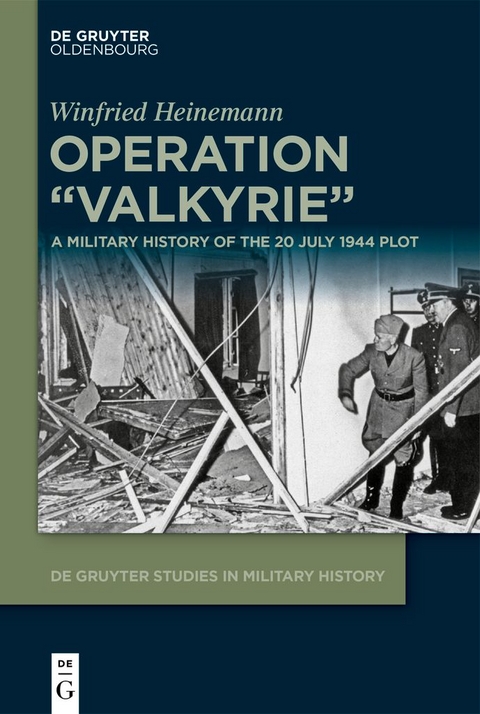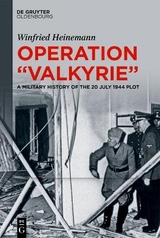Operation "Valkyrie"
De Gruyter Oldenbourg (Verlag)
978-3-11-069918-0 (ISBN)
Prof. Dr. Winfried Heinemann, Center for Military History and Social Sciences of the German Armed Forces, Potsdam
Praise for the German edition
"Methodologically and argumentatively the ultimate in research on July 20, 1944."
Rainer Volk, SWR 2 (Broadcast)
"To have also taken a look at the post-history of the military resistance up to our days is what makes this book so extraordinary. It is not only the sum of a researcher's life, but also its crowning achievement."
Rainer Volk, SWR, 7/23/2019
"Heinemann succeeds overall convincingly in presenting [...] a competent [...] survey work that is also accessible to the broader public."
Alexander Gallus, Der Tagespiegel (Berlin Newspaper), 7/18/2019
"The author succeeds in drawing the connection between the idea of resistance and the lines of tradition of the Bundeswehr based on the Basic Law. With a detailed outline of the events that culminated in the assassination attempt of July 20, 1944, the work opens up access even to less knowledgeable readers."
Lea Wurzensberger, if. Zeitschrift für innere Frührung 63 (2019), 72
"Heinemann succeeds in a sovereign manner in processing the extensive research on the attempted coup d'état of July 20, 1944, and in further developing it with recourse to diverse archival sources. [...] Winfried Heinemann's work is without doubt a significant enrichment of research on July 20, 1944."
Hendrik Thoß, Historische Zeitschrift 310/2, 539
"'Unternehmen Walküre' fills a gap in German military historiography as well as in resistance research and can be recommended as a standard work."
Josef Blotz, Order. Journal of the Community of Catholic Soldiers, issue 12/2019, 48
"Clarity and impartiality of judgment attest to the historiographical significance for years to come of this indispensable overall account of the run-up to and environment of July 20, 1944, which, despite its focus on military history, illuminates the resistance in all its breadth, diversity, and contradictoriness."
Peter Steinbach, Zeitschrift für Geschichtswissenschaft 10/2020, 888
| Erscheinungsdatum | 27.10.2021 |
|---|---|
| Reihe/Serie | De Gruyter Studies in Military History ; 2 |
| Zusatzinfo | color maps |
| Verlagsort | Basel/Berlin/Boston |
| Sprache | englisch |
| Original-Titel | Unternehmen "Walküre". Eine Militärgeschichte des 20. Juli 1944 |
| Maße | 155 x 230 mm |
| Gewicht | 807 g |
| Themenwelt | Geschichte ► Allgemeine Geschichte ► 1918 bis 1945 |
| Geisteswissenschaften ► Geschichte ► Regional- / Ländergeschichte | |
| Schlagworte | Count Claus Schenk von Stauffenberg • Militärgeschichte • Militär in der Nachkriegszeit • military history • military in the post-war period • resistance • Stauffenberg, Claus Schenk Graf vonStauffenberg, Claus Schenk Graf von • Tradition • Wehrmacht |
| ISBN-10 | 3-11-069918-4 / 3110699184 |
| ISBN-13 | 978-3-11-069918-0 / 9783110699180 |
| Zustand | Neuware |
| Informationen gemäß Produktsicherheitsverordnung (GPSR) | |
| Haben Sie eine Frage zum Produkt? |
aus dem Bereich




